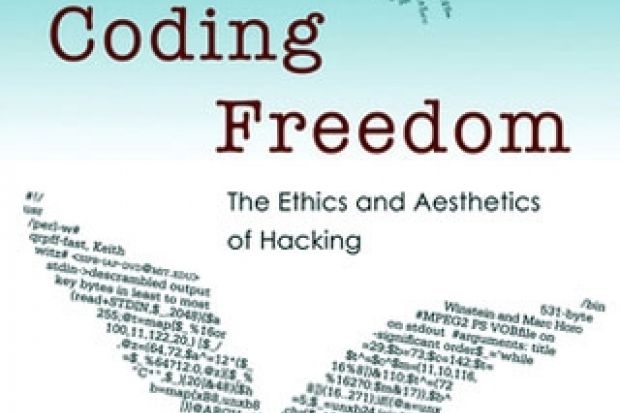In the summer of 2009 I was walking past a conference centre in downtown San Francisco in the afternoon sun. Ahead of me, a crowd of people spilled out from a major computing conference and trade show. Moving between the elements of the hugely diverse crowd - who were literally all shapes and sizes - I was struck by the change in the profile of the delegates since I had first attended such events a decade or so before. The corporate suits were still there, impeccably turned out (although with much smaller mobile phones than previously), but the structure of the sidewalk groups and the balance of power had shifted seismically. In the 1990s the suits were at the centre of the groups, with the geeks, nerds and pony-tailed hackers in the subservient role of peripheral supplicants - but now the positions had been reversed: hackers ruled.
As I tucked away an overheard technical comment about “stripped kernels” as the basis for a future joke at the expense of the military, I remember thinking that someone should be observing, charting and recording these fundamental changes in the software industry. As it turns out, someone was.
In a world that is moving so fast - and which is by its very nature often ephemeral - capturing and interpreting the social, cultural and legal effects of software development, the internet and global connectivity present some unusual problems. In this striking and important book, Gabriella Coleman provides an inside analysis of the rise of the free- and open-source software movement and charts its growth into a major force in the global software ecosystem.
Definitions are important, and few words elicit a stronger reaction in current society than “hacker” and “hacking”. Trawl the use of the term in the popular media and it is almost impossible to miss the negative associations of the description with the infiltration of corporate systems, the theft of information and the zealous pursuit of political ends. However, in the positive sense of the word, a hacker is a person who develops software code to get the best out of a set of data, hardware and circumstances. The code might be original or an improvement, collaborative or a solo project, robust or quick and dirty, or some combination of these - but it will be the result of determined, even fanatical, enthusiasm and labour. This is my definition, but there are thousands: your mileage may vary.
As an anthropologist, Coleman was in the interesting - and enviable - position of beginning her fieldwork among the hacker community of San Francisco in the early 2000s. The manner in which this community operated at the time, its relationship to the Silicon Valley corporates and the wider global hacker culture is crucial to building a full picture of how the ethical and legal stand-offs between traditional rights-based commerce and the open culture came about. It is a broad canvas and Coleman develops the picture well, explaining the context and history of software development and illustrating her thesis with first-hand observation, snippets of annotated code and community conversation selected from IRC (internet relay chat) logs (her contextual comments in this are all- important).
The descriptions of events and cultures ring true to my own experience of working in the borderland between these two communities, and I believe Coleman has captured a great deal of the essential spirit of the free- and open-software movement. This is a snapshot of a moment in time - one that might, without this book, quickly fade and perhaps later become the subject of speculation. It is an important account of a pivotal cultural movement - and in the spirit of openness it is available online as a PDF under a Creative Commons licence (CC BY-NC-ND). Equally, in the spirit of support for worthy endeavour, I strongly suggest that you buy a copy of the book.
Coding Freedom: The Ethics and Aesthetics of Hacking
By E. Gabriella Coleman
Princeton University Press, 264pp, £44.95 and £16.95
ISBN 9780691144603 and 44610
Published 4 January 2013
Register to continue
Why register?
- Registration is free and only takes a moment
- Once registered, you can read 3 articles a month
- Sign up for our newsletter
Subscribe
Or subscribe for unlimited access to:
- Unlimited access to news, views, insights & reviews
- Digital editions
- Digital access to THE’s university and college rankings analysis
Already registered or a current subscriber? Login




